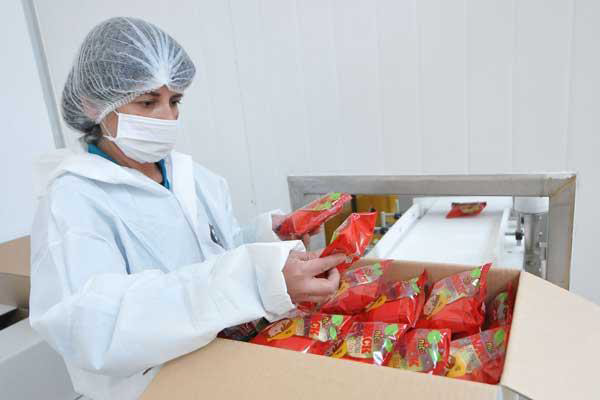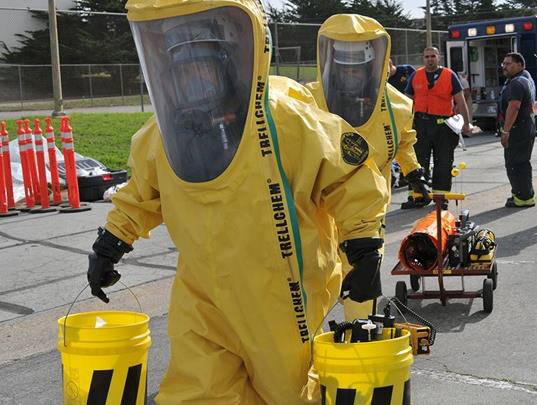COURSE OVERVIEW
HE0718 : Root Cause Analysis & Incident/Accident Investigation

OVERVIEW
| COURSE TITLE | : | HE0718 : Root Cause Analysis & Incident/Accident Investigation |
| COURSE DATE | : | Jun 03 - Jun 06 2024 |
| DURATION | : | 4 Days |
| INSTRUCTOR | : | Mr. Andrew Ladwig |
| VENUE | : | Al Khobar, KSA |
| COURSE FEE | : | $ 4500 |
| Request For Course | ||
OTHER SCHEDULED DATES
| Date | : | Mar 03 - Mar 07 (5 Days) | Location | : | Doha, Qatar | Classroom Fee (US$) | : | $ 6000 | Course Info |
| Date | : | Sep 02 - Sep 05 (4 Days) | Location | : | Abu Dhabi, UAE | Classroom Fee (US$) | : | $ 4500 | Course Info |
| Date | : | Dec 09 - Dec 12 (4 Days) | Location | : | Dubai, UAE | Classroom Fee (US$) | : | $ 4500 | Course Info |
Course Description
This practical and highly-interactive course includes various practical sessions and exercises. Theory learnt will be applied using our state-of-the-art simulators. A high percentage of incidents are caused by human error and lack of proper training. The number of such incidents may be greatly reduced by thorough investigation of incidents, establishing root causes, implementing effective corrective and preventative actions. This course is designed to introduce the attendees to established methods, of achieving this in a structured and proven manner. Root cause analysis is simply a tool designed to help investigators (1) describe WHAT happened during a particular occurrence, (2) determine HOW it happened and (3) understand WHY it happened. Only when investigators are able to determine WHY an event or failure occurred will they be able to specify workable corrective measures. Most event analysis systems allow investigators to answer questions about what happened during an event and about how the event occurred, but often they are not encouraged to determine why the event occurred. Generally, mistakes do not ?just happen?. They can be traced to some welldefined causes.When the analysis stops at the point of answering WHAT and HOW, the recommendations for preventing recurrence of the event may be deficient. Investigations that probe more deeply into WHY the error occurred are able to provide more specific, concrete and effective recommendations. The root cause analysis presented in this course is designed for use in investigating and categorizing the root causes of events with safety, health, environmental, quality, reliability and production impacts, although the exercises and case studies used in this course are predominantly those having safety and health impacts.
TRAINING METHODOLOGY
This interactive training course includes the following training methodologies as a percentage of the total tuition hours
LecturesWorkshops & Work Presentations
Case Studies & Practical Exercises
Videos, Software & Simulators
In an unlikely event, the course instructor may modify the above training methodology before or during the course for technical reasons.
VIRTUAL TRAINING (IF APPLICABLE)
If this course is delivered online as a Virtual Training, the following limitations will be applicable
| Certificates | : | Only soft copy certificates will be issued to participants through Haward’s Portal. This includes Wallet Card Certificates if applicable |
| Training Materials | : | Only soft copy Training Materials (PDF format) will be issued to participant through the Virtual Training Platform |
| Training Methodology | : | 80% of the program will be theory and 20% will be practical sessions, exercises, case studies, simulators or videos |
| Training Program | : | The training will be for 4 hours per day starting at 09:30 and ending at 13:30 |
| H-STK Smart Training Kit | : | Not Applicable |
| Hands-on Practical Workshops | : | Not Applicable |
| Site Visit | : | Not Applicable |
| Simulators | : | Only software simulators will be used in the virtual courses. Hardware simulators are not applicable and will not be used in Virtual Training |
RELATED COURSES

HE0755 : Certified Professional Food Manager (CPFM)
- Date : Dec 15 -Dec 19 / 3 Days
- Location : Doha, Qatar
- Course Details Register

HE0440 : Lifting & Rigging Equipment Selection, Sizing, Applications, Operation, Diagnostic Testing, Troubleshooting & Maintenance
- Date : Dec 16 -Dec 20 / 3 Days
- Location : Abu Dhabi, UAE
- Course Details Register

HE0581 : Certified Radiation Protection Officer (RPO): (1) In-line with the Requirements of the Federal Authority for Nuclear Regulation (FANR) (2) Accredited by the National Center for Radiation Protection (NCRP) - K.A.CARE
- Date : Dec 15 -Dec 17 / 3 Days
- Location : Dubai, UAE
- Course Details Register

HE1148(NA3) : Certificate in Process Safety Management
- Date : Jan 19 -Jan 23 / 3 Days
- Location : Kuwait City, Kuwait
- Course Details Register
